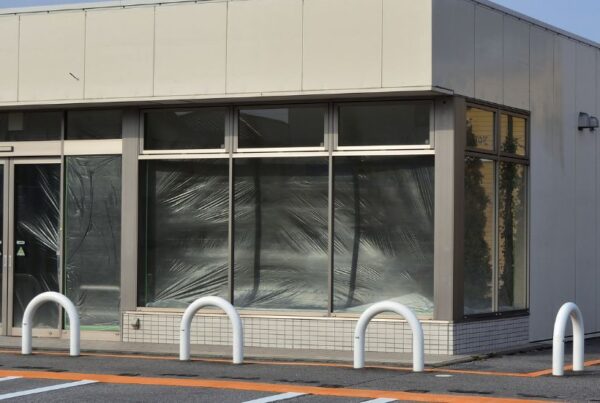Construction defects can range from structural issues and water intrusion to faulty electrical systems or poor workmanship. While some problems are obvious right away, others don’t surface until years after the project is completed.
If you’re a property owner, contractor, or developer in Florida dealing with a construction defect, proper documentation is one of the most critical steps you can take to protect your rights. It’s not just about identifying what went wrong, it’s about creating a clear record that can support your position if a dispute escalates to litigation.
At Ayala Law, we regularly represent property owners and businesses in construction litigation, helping them build strong, evidence-based cases that hold negligent parties accountable.
What Counts as a Construction Defect?
Florida law recognizes several categories of construction defects, including:
- Design Defects: Errors in architectural or engineering plans that lead to structural problems.
- Workmanship Defects: Poor-quality work that fails to meet building standards or specifications.
- Material Defects: The use of substandard or faulty materials that cause damage or safety issues.
- Subsurface Defects: Issues with soil, grading, or foundation stability.
Identifying the type of defect early helps determine who may be liable, the contractor, subcontractor, architect, or materials supplier, and guides how you document and present your case.
Step 1: Take Photos and Videos Immediately
The first rule in documenting construction defects is simple: record everything as soon as you notice the problem.
Use your phone or camera to capture:
- Wide shots showing the defect in context (e.g., where it’s located in the property).
- Close-up shots showing the specific damage.
- Video footage that captures ongoing issues, such as leaks, cracking, or movement.
Be sure to include a date and time stamp when possible. Visual evidence is extremely persuasive in construction defect cases, especially if repairs are made later and the physical evidence is lost.
Step 2: Keep All Written Communication
Save every email, text message, and written notice exchanged between you, your contractor, architect, or developer. These records often show how the issue was reported, what responses were given, and whether reasonable steps were taken to fix it.
If you send notices or letters, use certified mail or email with delivery confirmation so you can prove the message was received. Florida’s construction defect laws often require written notice before filing a lawsuit, so these communications can be crucial.
Step 3: Preserve All Contracts, Permits, and Change Orders
Keep copies of your original construction contract, invoices, payment records, warranties, and any change orders. These documents help establish the scope of work and the responsibilities of each party.
In Florida, many construction cases hinge on the exact language of the contract, particularly clauses about quality standards, inspection obligations, and timelines for repairs. Having complete and organized records can make or break your claim.
Step 4: Hire a Qualified Expert
In most cases, you’ll need an expert, such as an engineer, general contractor, or building inspector, to evaluate and confirm the existence of a construction defect. An expert report provides technical credibility and links the defect to the responsible party’s work or materials.
Your attorney can recommend the right expert for your case and coordinate inspections to ensure evidence is preserved properly.
Step 5: Avoid Making Repairs Before Legal Review
It’s natural to want to fix the problem quickly, especially if it’s causing ongoing damage. However, making repairs too soon can destroy critical evidence. Before you make any major changes, consult with a construction attorney who can advise you on how to preserve the evidence and document the condition properly.
If repairs are absolutely necessary for safety reasons, make sure you take detailed photographs and have an expert inspect the area beforehand.
Step 6: Act Within Florida’s Statute of Limitations
Under Florida law, construction defect claims are subject to strict deadlines. Generally, you must file a lawsuit within four years of discovering (or when you should have discovered) the defect, and no more than ten years after the project’s completion, depending on the circumstances.
Failing to act within these timeframes can permanently bar your claim, no matter how strong your evidence is.
How a Construction Litigation Attorney Can Help
Construction defect cases are complex. They often involve multiple parties, technical reports, and a mix of contract and tort law. A skilled construction litigation attorney can:
- Evaluate your documentation and determine whether you have a valid claim.
- Handle communications with contractors, insurers, and opposing counsel.
- Coordinate expert inspections and prepare a legal strategy for settlement or trial.
At Ayala Law, we represent property owners, developers, and contractors throughout Florida in construction disputes involving defects, delays, and payment issues. Our goal is to protect your investment and pursue the most effective resolution, whether that means negotiation, mediation, or litigation.
Final Thoughts
Construction projects are major investments, and when something goes wrong like a construction defect, the financial and emotional toll can be significant. By taking the right steps to document defects early, you strengthen your position and give your attorney the tools needed to secure a fair outcome.
If you believe your property has construction defects, contact one of our experienced attorneys in Miami at 305-570-2208.
You can also contact our founding attorney Eduardo A. Maura at eduardo@ayalalawpa.com.
Schedule a case evaluation online here.
[The opinions in this blog are not intended to be legal advice. You should consult with an attorney about the particulars of your case].
Subscribe to Our Blog
Stay informed with our latest blog posts delivered directly to your inbox. Gain valuable legal insights, tips, and advice from our seasoned attorneys.








